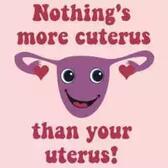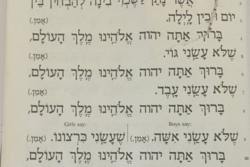From Camp Gyno to Women’s Health Activist
The summer of 2013 was when I taught my bunk at Camp Young Judaea that girls have more than two holes “down there.” Now for those uninitiated with the workings of a girls’ bunk, this may seem crazy or even obscene. However, for us, this was just another lesson in a long line of facts about the female body I had told my bunkmates that summer. Out of all of us, I was the first girl to get my period, and I didn't care who knew. One girl had brought an anatomy book, and I poured through the section on the reproductive system to supplement my limited knowledge. I was G-9’s (our bunk) own camp gyno, and I relished the respect I got from it.
Not many good things came out of getting my period in fifth grade, but being able to help my friends learn about their bodies was pretty awesome. As someone who is always thinking about the future, I flirted with the idea of being a sex educator at that moment, but discarded that idea in favor of my dream of being a lawyer. Because everyone knows what they want to be at thirteen, right? So for the next couple years sexual health was on the back burner. I was drawn back to it for a time in freshman health class, where I was the only one who could label all the parts of both the penis and vagina, but it didn't last for long.
Then, in the middle of last year, after Planned Parenthood was put under intense scrutiny, I became obsessed with finding out all that I could about abortion and women’s health. I watched as lawmakers all across the country chipped away at Roe vs. Wade, and cringed as I learned about the direct correlation between teen pregnancy and abstinence-only education. This was when I started to realize just how important it is for young women to know about the inner-workings of their own bodies. Back at camp it was just something that was fun and didn’t seem all that important, but now I knew this was serious.
This summer I went on a trip to Israel with my camp, and I was shocked to learn that a lot of girls didn’t even know where their clitoris was. I’ve realized that it’s so important to be knowledgeable about your body so that you are adequately prepared for sexual experiences, and don’t unknowingly fall into unsafe situations. When people think that just pulling out is safe contraception, or that your first time has to be painful (nothing about intimacy is supposed to feel a certain way by the way--you get to choose what is right for you), I get really upset by how our society stigmatizes sex and sex education, often sweeping it all under the rug instead of educating people, especially young people.
I want to be part of a change in the stigma around sex and sex education. While in Israel, I realized that I can make a difference. I can encourage people in my community to teach their students, siblings, sisters, and daughters, not only about contraception and anatomy, but also about safe relationships and how to deal with unsafe situations. I hope to lead this charge in the near future. My dream job now would be a lobbyist for a sexual health organization, or even a lawmaker pushing for better sex education laws, thus combining my interests in law and women’s health.
I think feminist activists can often be most effective when they focus on a specific cause or issue. For me that focus is on sexual health. It is so important for feminists to take on the fight for sex education because so many of our lawmakers today are working to prevent girls from learning about their bodies and sex in school. I hope someday that every girl has the ability to be the “camp gyno” like I was, and has the ability and desire to educate her friends and community.
This article was also published on Teen Voices at Women's eNews.
This piece was written as part of JWA’s Rising Voices Fellowship.








